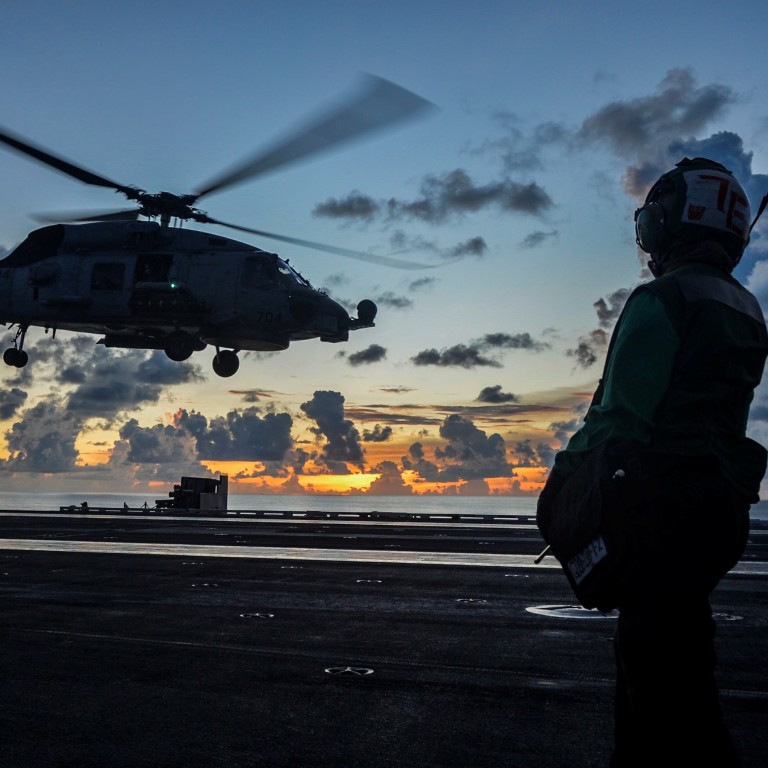
China-US tension: military officials meet to discuss how to avoid all-out conflict amid rising temperature
- Crisis Communications Working Group meets amid unfounded whispers that Trump administration plans attack on Chinese-claimed islands in the South China Sea
- Working group reflects a push by both sides to stop deteriorating relations becoming military conflict, says analyst
“The two sides agreed on the importance of establishing mechanisms for timely communication during a crisis, as well as the need to maintain regular communication channels to prevent crisis and conduct post-crisis assessment,” the Pentagon said in a statement.
Participants in the working group included representatives of the office of the Secretary of Defence, the Joint Staff and the US Indo-Pacific Command. The Chinese participants included representatives of the Central Military Commission’s Office for International Military Cooperation, the CMC Joint Staff Department and the PLA Southern Theatre Command.
Both Chinese and regional analysts said there was an urgent need for such a mechanism amid the rising tensions between the two countries on multiple fronts, from trade to geopolitical rivalry.
“With the US stepping up its pressure and containment strategy against China, the chance of serious miscalculation by either military has been on the rise and without proper communication channels it could lead to the outbreak of military conflict,” said Song Zhongping, a Hong Kong-based military commentator.
Defence ministers talk under the shadow of US flight near China coast
Collin Koh, a research fellow from the S Rajaratnam School of International Studies at Nanyang Technological University in Singapore, said the new working group reflected efforts by the two countries to prevent their deteriorating relations from spilling over into the military domain.
“This also reflects recent murmurs amongst Chinese policymakers and academics about finding it increasingly harder to communicate with their American counterparts, and even some speculation that went to such an extent as claiming that Trump may seek to provoke a military incident to boost his re-election chances. And I believe this is a shared sentiment between Beijing and Washington,” Koh said.
Separately, Chinese defence ministry spokesman Wu Qian said on Thursday that the two militaries would hold talks on humanitarian assistance in mid-November and on maritime security before the end of the year.
The US and Chinese militaries established a maritime security consultation mechanism in 1998 to prevent conflict in the air and at sea. Its last meeting was in the eastern Chinese city of Qingdao in June last year.
“This new working group, in my opinion, can only be effective if there’s sustained effort and commitment from both parties to keep such dialogues going and functional, and not necessarily subject to the political intrigues.”

